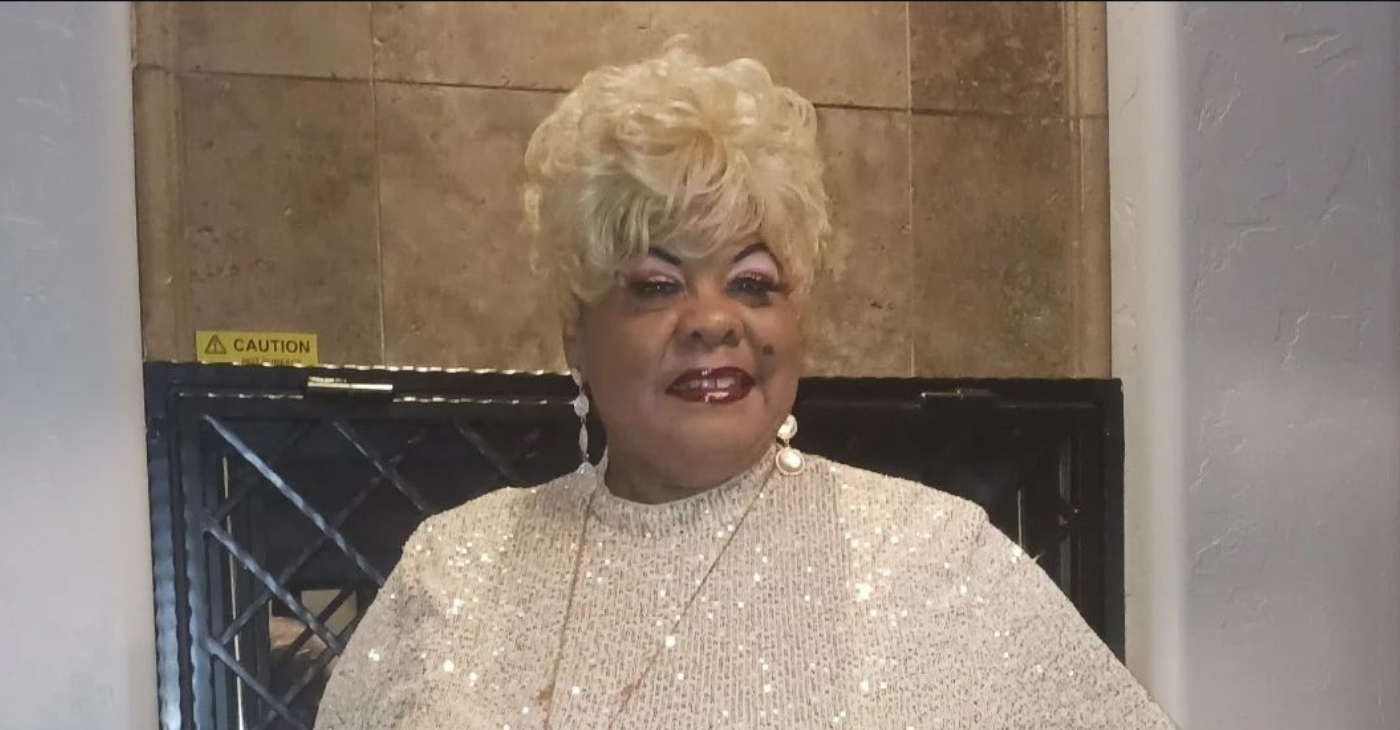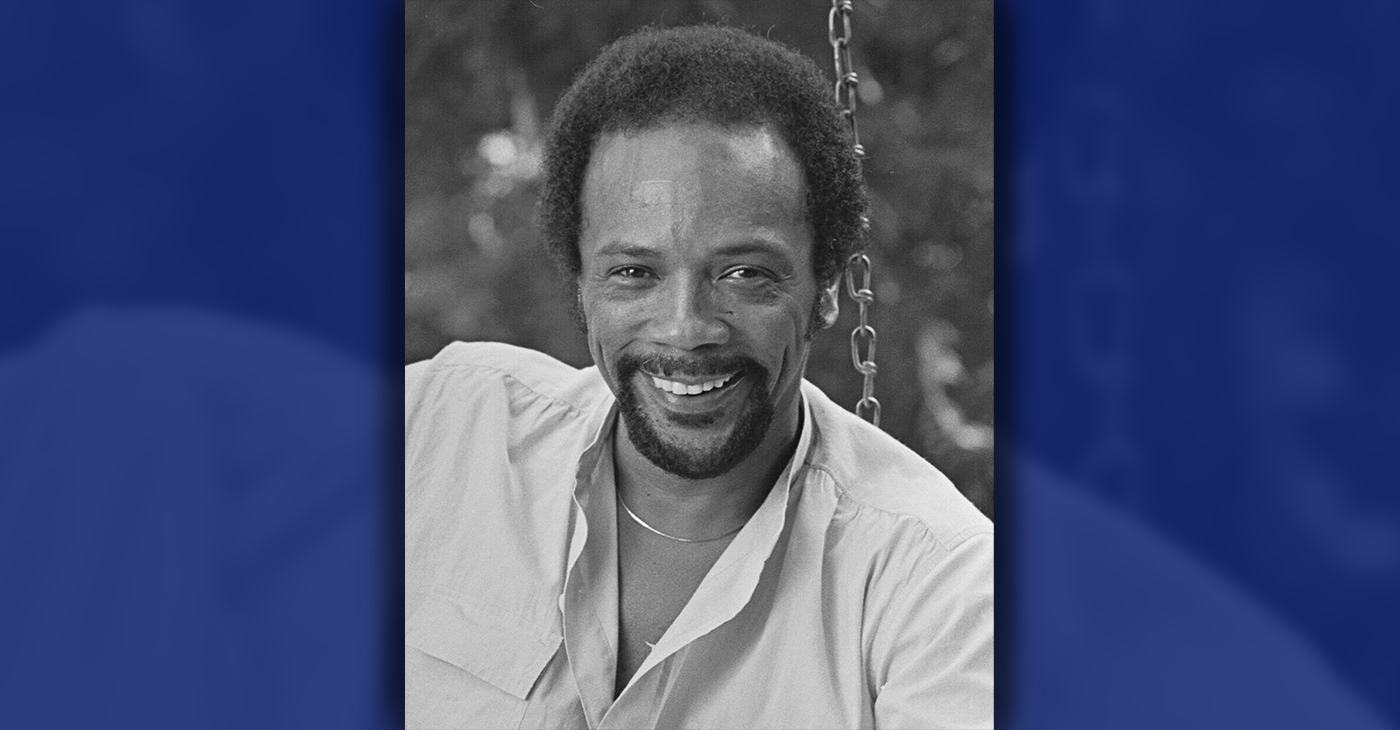Music
New Sardis Baptist Church Honors “Memphis Living Legends”
THE TENNESSEE TRIBUNE — On Sunday morning, Feb. 24, New Sardis Baptist Church invoked the spirit of African-American ancestry coupled with Afro-centric music.
By Wiley Henry
MEMPHIS, TN — On Sunday morning, Feb. 24, New Sardis Baptist Church invoked the spirit of African-American ancestry coupled with Afro-centric music and the unadulterated Word of God. This was the culmination of African-American History Month and the presentation of the church’s annual Memphis Living Legends program.
The morning worship service was devoted to the men and women whom the church honored and celebrated for blazing a path in their respective fields and making significant contributions in Memphis and beyond.
“We honor men and women who have made our society better,” said the Rev. Dr. L. LaSimba M. Gray Jr., New Sardis’ pastor emeritus and worship leader for the morning celebration.
Donning African attire, the church’s leadership team – headed by its pastor, the Rev. Darell Harrington – welcomed the 2019 Living Legends: State Rep. Karen Camper, Captain Albert T. Glenn, Dr. Howard Glenn, Bishop William Graves Sr., Estella Mayhue-Greer, Henry Hooper, Bobby O’Jay Jones, Clarence Jones, Jerry C. Johnson, John McFerren, Tajuan Stout-Mitchell, the Rev. Dr. Rosalyn R. Nichols, Rosetta Hicks Peterson, Dr. Larry Robinson, Mark Russell, Dr. Theresa James Shotwell, Madeleine C. Taylor and Fayth Hill Washington.
Jimmy Ogle, Shelby County’s historian and past chairman of the Shelby County Historical Commission, presented The Frances Wright Award. Wright was a 19th century Scottish-born abolitionist, social reformer, lecturer, freethinker and writer.
Honoring “living legends” was the brainchild of Dr. Erma L. Clanton, a playwright, lyricist, former teacher and member of New Sardis. The inaugural salute to living legends began in 2003 after Clanton, now 96, pitched the idea to Gray.
Celebrating black achievement in the U.S. first began in 1926 as Negro History Week – the precursor of Black History Month – founded by Carter G. Woodson, an historian, author, journalist and founder of the Association for the Study of African American Life and History.
Of course, James Weldon Johnson’s “Lift Ev’ry Voice and Sing,” known as the “Black National Anthem,” was integral to the program – as it is each year – and key to setting the tone for the morning.
“Everybody here today – black, white, blue or green – that’s your native land,” said Gray, referring to the continent of Africa. “Native land should be replaced with Africa because we all came from the continent.”
Harrington posed the question: “How does our history impact the relevance of our present?” and composed his message, “The Transformative Power of Truth,” from John 8:31-36.
Recognizing the history of black contributions throughout his sermon, Harrington referred to the passage in John when Jesus said to the Jews who believed Him, “If you abide in My word, you are My disciples indeed.” Then he added: “And you shall know the truth, and the truth shall make you free.”
“What does it mean in the 21st century to be free?” Harrington asked the congregation. He followed up with an answer to the question: “It should mean you ought to serve God.”
He said Black people have offered the world the best that the world has to offer and added, “It’s easy to forget one’s history. It’s easy to forget because we’ve become comfortable.”
Using as an example, he said, “It was illegal to write, but God made a way.”
Harrington continued to espouse the relevance and cultural significance of black pioneers and trailblazers, and undergirded the message with the importance of keeping God first.
“We celebrate black history,” he said. “But we have to celebrate a risen Savior.”
This article originally appeared in The Tennessee Tribune
Arts and Culture
Promise Marks Performs Songs of Etta James in One-Woman Show, “A Sunday Kind of Love” at the Black Repertory Theater in Berkeley
“The (show) is a fictional story about a character named Etta, aka Lady Peaches,” said Marks. “She falls in love with Johnny Rhythm, leader of the Rhythm Players Band and headliners of Madam G’s Glitta Lounge.” Marks channeled the essence of Etta James, singing favorites such as “Sugar on the Floor” and “At Last.”

Special to the Post
It was “A Sunday Kind of Love” at the Black Repertory Group Theater in Berkeley on Saturday night, Dec. 7. The one-woman musical based on the music of Etta James featured the multi-talented singer Promise Marks
Marks, who wrote and directed the musical, also owns PM Productions.
“The (show) is a fictional story about a character named Etta, aka Lady Peaches,” said Marks. “She falls in love with Johnny Rhythm, leader of the Rhythm Players Band and headliners of Madam G’s Glitta Lounge.”
Marks channeled the essence of Etta James, singing favorites such as “Sugar on the Floor” and “At Last.”
In between her soulful songs, Marks narrated impactful moments of the love story and journey of blues and forgiveness.
Marks sultry voice carried the audience back to an era that echoed with the power of Black music and a time of great change.
Marks said James shared love for the Black community by singing at gatherings during the Civil Rights Movement uplifting the people.
“She spoke to the movement, spoke to the people, and let her music speak for itself,” Marks said.
Backing the musical’s monologues, images and videos of Etta James are projected for the audience to view. While the production is fictional, Marks infused script with the unfairness and heartbreak James experienced while performing.
Marks performed gospel artist Donnie McClurkin’s “We Fall Down” as she narrated acts of reconciliation and forgiveness among the characters at Johnny Rhythm’s deathbed.
Marks, who regularly sings for the Miss America Pageant, was asked to perform as Etta James last year. “(At the event) a lady yelled out to me: ‘You’re Etta James!’ And then the audience went crazy. I said to myself, ‘I may have something here,’” she said.
Within 12 months, Marks created the musical production, which featured a dozen songs honoring “the great legacy of Etta James,” she said.
Marks says she was saddened to see how Etta James was often judged by the struggles in her life and wanted to offer attendees a more layered view.
“Etta’s life was so big. I want people to know that she was more than her drug addiction,” said Marks. “We can’t make that her legacy. Her catalog is too amazing. You can’t just be that and have the catalog that she (created). I don’t want the addiction to be the focus: I want her music, her element, her sassiness, and what she brought to be the focus – her woman-ness, that she was strong, and I wanted to honor that.”
Set Designer Nora Burnette says she created the set segments to mirror James’ life story. A set designer for BRG since 2016, she explained that her process of researching the scenario and the character serve as her inspiration for her design.
“I try to design a set as close to real life as possible so that the actress can deliver the performance sincerely,” said Burnette. “By creating the right setting, it helps the actors release the true essence of a character.”
The set brought the story to life and absolutely floored Marks. “Once Promise (Marks) saw the actual set, she understood my vision: ‘Wow, you get me. You get it,'” Marks told the designer.
Born Jamesetta Hawkins, Etta James, began her career in 1954 and gained fame with hits such “At Last” and “I’d Rather Go Blind.” She faced a number of personal problems, before making a musical comeback in the late 1980s with the album “Seven Year Itch.”
Co-producer and BRG Development Director, Sean Vaughn Scott, works with Overseer Production. According to producer Pamela Spikes, “Marks talent truly does Etta’s life story justice.”
Pam Jacobs of Hercules, a friend of Marks’ mom, Jackie Smith, said, Marks “was fabulous and sang all of those songs flawlessly.”
“I’m so proud of my daughter,” said Smith.
Marks, who has served as an instructor for BRG, will return on Feb. 21- 23 for an encore run of the musical.
“It’s an honor to be a part of the BRG (Black Repertory Group) family and continue our executive director Dr. Mona Vaughn Scott’s vision for the Black Repertory Group theater,” said Marks.
The Black Repertory Group Theatre is located at 3201 Adeline St., Berkeley, CA 94703. For information, visit: BlackRepertoryGroup.com
Black History
California Leaders Pay Tribute to Quincy Jones
On Nov. 4, the celebrated life of music producer Quincy Delight Jones came to an end at his home in Bel Air. The cause of death has not been disclosed. Jones leaves behind a rich legacy of music and achievements that spans 70 plus years. His impact on multiple genres of music as well as his contributions to art and education will have a lasting impact.

By Reginald S. Webb Jr.
California Black Media
On Nov. 4, the celebrated life of music producer Quincy Delight Jones came to an end at his home in Bel Air.
The cause of death has not been disclosed.
Jones leaves behind a rich legacy of music and achievements that spans 70 plus years. His impact on multiple genres of music as well as his contributions to art and education will have a lasting impact.
“Quincy Jones brought the world endless joy with his optimistic spirit and colossal imagination. Not a day goes by without hearing a masterpiece that Quincy produced or hearing about the good he created with his generous heart,” said Gov. Gavin Newsom. “Jen and I — and all of California — mourn the loss of this great humanitarian and artist.”
Jones was born on March 14, 1933, in Chicago. By 10 years old, Jones’s family relocated to Bremerton, Washington where he met his first formal music mentor, Robert Blackwell, a well-known arranger, bandleader, song writer, and producer. He was a vital part of Quincy’s growth as a musician.
In 1951, Jones earned a scholarship to study music at Seattle University. After a semester there, he transferred to Berklee College of Music in Boston. His stay at this college was short-lived because he left to tour with the jazz percussionist and bandleader Lionel Hampton.
“I’m deeply saddened to learn of Quincy Jones’ passing. His talent and resilience led him to not only break barriers but become one of the most successful producers of all time, touching countless lives through music,” said Congresswoman Sydney Kamlager (D-CA-37). “We’ll miss my fellow Chicagoan-turned-Angeleno.”
Los Angeles Mayor Karen Bass said Jones “broke barriers in an industry that had long worked to exclude artists that looked like him.”
“Quincy Jones brought laughter, celebration, happiness and joy into the homes of millions. As a musician, composer, producer, and arranger, he changed our culture, and he changed our world,” added Bass.
Film scoring led to another trailblazing moment for Quincy Jones. He became the first African American to be nominated for an Academy Award for best original film score in 1967 for In Cold Blood. The same year he was also nominated for best original song for, The Eyes of Love, from a film titled Banning.
“He was unmatched in the creativity of his many productions. I will never forget how he worked with me to present Nelson Mandela, where 90 thousand people showed up at the Los Angeles Coliseum following his release from prison in South Africa. Quincy Jones will never be forgotten,” remembers Congresswoman Maxine Waters (D-CA-43).
Over his career, Jones received 80 Grammy nominations and won 28 of them. He released 16 studio jazz albums, 24 soundtracks albums, three live albums, and four compilation albums.
1n 2011, President Barack Obama honored Jones with the National Medal of Arts.
Jones is survived by his seven children and six grandchildren.
“Jones has provided a soundtrack to the best moments of so many lives – and to the deepest movements of change in this country. Our city is forever bettered by his gifts. We celebrate his life, and we mourn this loss,” Bass paid tribute to Jones.
Art
At Oakland Symphony’s 2024-25 Season Opening, Music Director Kedrick Armstrong Will Make History
Music Director Kedrick Armstrong will make history with his debut performance at the Oakland Symphony’s 2024-25 Season Opening Concert on Oct. 18, at 8 p.m. at the Paramount Theatre in Oakland. Armstrong, who is from Georgetown, South Carolina, is the ninth music director in the organization’s almost 100-year-history. His appointment follows in the footsteps of the late Oakland Symphony Music Director and Conductor Michael Morgan.

By Oakland Post Staff
Music Director Kedrick Armstrong will make history with his debut performance at the Oakland Symphony’s 2024-25 Season Opening Concert on Oct. 18, at 8 p.m. at the Paramount Theatre in Oakland.
Armstrong, who is from Georgetown, South Carolina, is the ninth music director in the organization’s almost 100-year-history. His appointment follows in the footsteps of the late Oakland Symphony Music Director and Conductor Michael Morgan.
Armstrong, 30, is not a new face to Oakland as he has been an active partner with the Oakland Symphony over the last few years both on and off-the-stage.
From 2022-24, Armstrong led three Oakland Symphony programs and guest-conducted the orchestra, showcasing his broad knowledge of the classical repertoire and enthusiasm for spotlighting diverse voices.
On his Oakland Symphony subscription debut on Feb. 16, Kedrick led the World Premiere of “Here I Stand: Paul Robeson,” an oratorio by Carlos Simon on a libretto by Dan Harder, commissioned by the Oakland Symphony.
On April 16, 2023, Armstrong conducted the Oakland Symphony’s Family Hype concert, presented in partnership with Ronald McDonald House Charities of the Bay Area. Armstrong first led the orchestra for a free “Summerstage at City Hall” concert at Oakland City Hall on Aug. 4, 2022.
The music program “Kedrick Armstrong Inaugural Inextinguishable Oakland!” will include commissioned works from master drummer Allison Miller and Bay Area artists – Ethiopian artist Meklit and Latin percussionist John Santos – in celebration of Living Jazz’s 40th anniversary.
Oct. 18 musical program:
Julia Perry: A Short Piece for Orchestra
Celebrate the 40-Year Anniversary of Living Jazz with three jazz-rooted compositions.
“Valley of the Giants” (for Eddie Marshall); Allison Miller, composer; arranged and orchestrated by Todd Sickafoose. Featured artist: Allison Miller, Drum Set; guest artist: Dayna Stephens, Saxophone.
Medley: “Ethio Blue, My Gold, Stars in a Wide Field”
Songs and Lyrics by Meklit; arrangement and orchestration by Sam Bevan. Featured artist: Meklit, Vocals; guest artists: Sam Bevan, Bass, Colin Douglas, Drumkit, Marco Peris Coppola, Tupan/Percussion.
“Un Levantamiento (An Uprising)”
Composer, percussion: John Santos; arrangers: Saul Sierra and John Santos. Featured artist: John Santos, güícharo, bongo; guest artists: Pedro Pastrana, Puerto Rican cuatro; Maria Cora, spoken word.
Carl Nielsen: Symphony No. 4, “The Inextinguishable”
Pre-concert talk by John Kendall Bailey begins at 7:05pm.
For tickets, go to: https://oaklandsymphony.my.salesforce-sites.com/ticket/#/events/a0SUu0000001rYXMAY
-

 Activism4 weeks ago
Activism4 weeks agoOakland Post: Week of November 20 – 26, 2024
-

 California Black Media3 weeks ago
California Black Media3 weeks agoCalifornia to Offer $43.7 Million in Federal Grants to Combat Hate Crimes
-

 Activism4 weeks ago
Activism4 weeks agoAn Inside Look into How San Francisco Analyzes Homeless Encampments
-

 Black History3 weeks ago
Black History3 weeks agoEmeline King: A Trailblazer in the Automotive Industry
-

 California Black Media3 weeks ago
California Black Media3 weeks agoCalifornia Department of Aging Offers Free Resources for Family Caregivers in November
-

 California Black Media3 weeks ago
California Black Media3 weeks agoGov. Newsom Goes to Washington to Advocate for California Priorities
-

 Activism3 weeks ago
Activism3 weeks agoOCCUR Hosts “Faith Forward” Conference in Oakland
-

 #NNPA BlackPress4 weeks ago
#NNPA BlackPress4 weeks agoPRESS ROOM: Clyburn, Pressley, Scanlon, Colleagues Urge Biden to Use Clemency Power to Address Mass Incarceration Before Leaving Office
























































